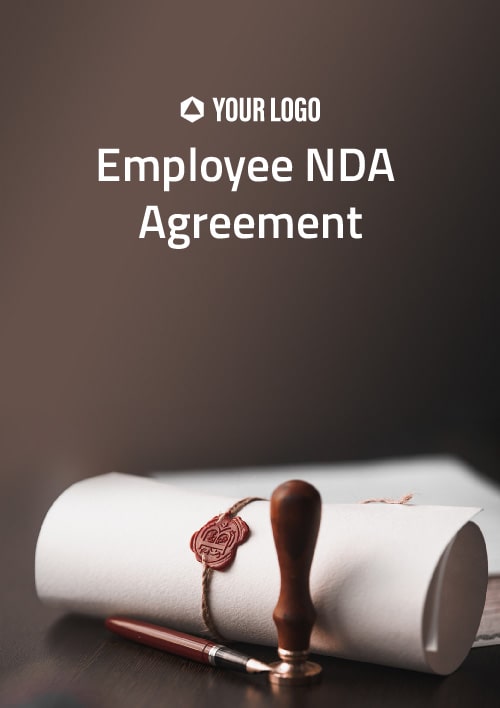
Entertainment Contract
Empty space
1x
2x
3x
Prepared for:
[Entertainer Name]
Prepared by:
[Event Promoter Name]
Entertainment Contract
Entertainment Contract
This Entertainment Contract (hereinafter referred to as the "Contract") is entered into and shall be effective as on [Date] (hereinafter referred to as the "Effective Date")
By and Between
[Entertainer Name] (hereinafter referred to as the “Entertainer”), officially residing at [Address], and;
[Event Promoter Name] (hereinafter referred to as the “Promoter”), having its principal place of business at [Address].
The Entertainer and the Promoter are collectively referred to as the "Parties" and individually as "Party".
WHEREAS the Promoter desires to hire the Entertainer as an independent contractor to engage and entertain the audience at the [Venue] for the [Event Name] (hereinafter referred to as the "Event") being held on the [Effective Date].
AND WHEREAS the Entertainer agrees to perform and deliver a performance of [Music/Dance/Singing/Any other performance type] (hereinafter referred to as the "Entertainment Service").
NOW, THEREFORE, in consideration of the mutual covenants and commitments contained herein, the Parties do hereby agree as follows.
Empty space
1x
2x
3x
Terms and Conditions
Terms and Conditions
1. Event Description
1. Event Description
The purpose of the Event is to [Mention the Purpose]. The Entertainer agrees to provide its services at the following venue and time:
- Event Date: [Date]
- Event Venue: [Address]
- Estimated Start Time: [Time]
- Estimated End Time: [Time]
- [Mention any other details required]
2. Entertainer's Responsibilities
2. Entertainer's Responsibilities
The Entertainer shall have the following responsibilities during the term of this Contract:
- The Entertainer shall arrive at the venue at least [Mention time] before the starting of the Event to set up the equipment and conduct a soundcheck.
- The Entertainer shall refrain from using foul language or any such morally unacceptable act or display.
- The Entertainer shall adhere to the decorum of the Event.
- [Add More]
3. Compensation
3. Compensation
As full compensation for the services, the Promoter shall pay the Entertainer an amount of $[0.00] (hereinafter referred to as the "Performance Fee"). In consideration of this fee, the Entertainer shall engage the audience at the Event for [Number of Hours].
Upon the signing of this Contract, the Promoter shall pay a non-refundable deposit of $[0.00] to the Entertainer (hereinafter referred to as the "Deposit"). This deposit will be deducted from the Performance Fee and will be shown in the final invoice statement provided by the Entertainer to the Promoter.
Upon the completion of the Event, if the payments are not made within [Number of Days], the Entertainer shall have the option to consider the Promoter in breach of this Contract and claim a late penalty of $[0.00].
The Entertainer agrees that the Performance Fee is inclusive of all expenses such as accommodation, travel, meal, and any other expenses incurred by the Entertainer in connection with this Contract.
The payment shall be made in USD through [Cash/cheque/credit card].
4. Term
4. Term
This Contract shall start on the Effective Date and shall continue until the termination or completion of the Event. However, certain clauses as per their nature shall continue to oblige the Parties as stated therein, such as the Confidentiality, Intellectual Property, Arbitration, and such other clauses.
5. Termination
5. Termination
This Contract may be terminated by:
- Either Party upon [Number of Days] days prior written notice to the other Party, with or without cause;
- Either Party upon the breach of any terms mentioned herein by the other Party, if the other Party doesn't cure the breach within [Number of Days] days of the receipt of written notice of the breach;
- The Promoter, if the Entertainer fails to comply with the reasonable directives of the Promoter;
- The Entertainer, if the Promoter doesn't pay the deposit or the remainder of the Performance Fee within [Number of Days] days after sending written notice to the Promoter.
The Contract shall be terminated upon the completion of the Event or upon an express cancellation by either of the Parties.
6. Intellectual Property
6. Intellectual Property
Any proprietary information shared by the Entertainer during the tenure of the Contract is rightfully the Entertainer's existing intellectual property. The Promoter shall not claim any ownership over such intellectual property. However, ownership may be claimed only if the Entertainer agrees in writing, to transfer such rights to the Promoter.
7. Recording
7. Recording
The Promoter may record all or part of the Entertainer's performance. The master copy of the recording shall reach the Entertainer within [Number of Days] days after the Event ends. The Promoter shall keep the recording for internal use only and shall not sell these copies. Should the Promoter wish to make other recording or distribution arrangements, the Promoter shall seek written permission from the Entertainer.
8. Personal and Technical Assistance
8. Personal and Technical Assistance
The Promoter shall provide the Entertainer with the necessary personal and technical assistance required during the Event. The Entertainer requires the following requirements in order to provide Entertainment Services:
- Personal Requirements
- [List the personal requirements required by the Entertainer]
- Technical Requirements
- [List the technical requirements required by the Entertainer]
9. Relationship of the Parties
9. Relationship of the Parties
The Promoter is hiring the Entertainer as an Independent Contractor. Both Parties shall not establish any partnership or employer-employee relationship.
10. Limitation of Liability
10. Limitation of Liability
The services to be performed during the Event under this Contract shall be performed entirely at the risk of the Promoter, and the Promoter assumes all responsibility for the condition of the Venue. The Entertainer shall not be liable for any indirect, incidental, special, and consequential damages arising out of this Contract.
11. Confidentiality
11. Confidentiality
During the term of this Contract, the Promoter shall share all the information related to the Event and other confidential information to the Entertainer to conduct the performance. The Entertainer shall not disclose any of the shared information at any time to third parties or for personal benefit.
12. Representation and Warranties
12. Representation and Warranties
Representations
- The Entertainer hereby represents to have the expertise, knowledge, and experience needed to render the said Entertainment Service.
- Both the Parties agree to uphold all the laws and legal requirements of the state of [State].
- In addition, the Entertainer shall conform to moral, ethical, and other required standards pertaining to the nature of the entertainment Service in course of executing all the obligations and services under this Contract.
Warranties
- The Entertainer warrants to render the said Entertainment Service in the most efficient and timely manner.
- The Entertainer shall take special care that all the obligations mentioned in the Entertainer's Responsibilities clause are executed while providing the Entertainment Services.
- The Promoter acknowledges that the Entertainer shall not be held responsible for any hindrance or human error arising during or due to the performance which is out of the capacity of the Entertainer to absolutely avoid, such as hindrances from the audience, technical glitches, etc.
13. Exclusivity
13. Exclusivity
The Entertainer shall perform exclusively for the Promoter throughout the actual period of services arising out of this Contract.
14. Grant of Rights
14. Grant of Rights
The Entertainer grants the following rights to the Promoter:
- The right to use and publish the Entertainer's name and photographs for advertising purposes in connection with the Event mentioned in this Contract.
- [Add more rights]
15. Indemnification
15. Indemnification
Both Parties agree to indemnify and hold each other harmless for any losses, damages, or liabilities, without limitation.
16. Arbitration
16. Arbitration
In the event of any dispute arising in and out of this Contract between the Parties, it shall be resolved by Arbitration. There shall be [Number of Arbitrators] which shall be appointed by [Party(s) Name]. The place of Arbitration shall be [Venue of Arbitration] and Seat shall be [State]. The Arbitrators’ decision shall be final and will be binding upon both Parties.
17. Miscellaneous
17. Miscellaneous
- Assignability: Neither Party may assign this Contract or the rights and obligations thereunder to any third party without the prior express written approval of the other Party which shall not be unreasonably withheld.
- Notices: Any notice required to be given to the Promoter shall be delivered by certified mail, personal delivery, or overnight delivery paid for by the Entertainer.
- Force Majeure: Neither Party shall be liable for any failure in performance of the obligation under this Contract due to cause beyond that party's reasonable control (including and not limited to any pandemic, fire, strike, act or order of public authority, and other acts of God) during the pendency of such event.
- Modification: No modification of this Contract shall be made unless in writing, signed by both Parties.
- Severability: If any term, clause, or provision hereof is held invalid or unenforceable by a court of competent jurisdiction, all other terms will remain in full force and effect until the contract termination.
- Governing Law and Jurisdiction: This Contract shall be governed following the laws of the [State/Court/Region]. If the disputes are not resolved by arbitration, it shall be resolved by litigation in the courts of the [State/Court/Region] including the federal courts therein. The Parties consent to the jurisdiction of such courts and agree to accept service of process by mail and hereby waive any jurisdictional or venue defences otherwise available to it.
- Legal and Binding Contract: This Contract is legal and binding between the Parties as stated above. This Contract may be entered into and is legal and binding in the [State/Court/Region]. The Parties each represent that they have the authority to enter into this Contract.
- Entire Contract: This Contract constitutes the entire understanding of the Parties, and revokes and supersedes all prior contracts between the Parties, and is intended as a final expression of their Contract. It shall not be modified or amended except in writing signed by the Parties hereto and specifically referring to this Contract. This Contract shall take precedence over any other documents which may conflict with this Contract.
Empty space
1x
2x
3x
Acceptance and Signature
Acceptance and Signature
The Parties signing this Contract represent and warrant that they are duly authorized and have the legal capacity to execute and deliver this Contract.
[Entertainer Name]
[Event Promoter]
Signature
Assign signer 1
Name
Assign signer 1
Date
Assign signer 1
Signature
Assign signer 2
Name
Assign signer 2
Date
Assign signer 2
Empty space
1x
2x
3x
DISCLAIMER: Revvsales, Inc is not a law firm. The content provided herein is for general information purposes only, and does not constitute legal advice. Revvsales, Inc and its partners make no representation or warranty of any kind, express or implied, regarding the accuracy, adequacy, validity, reliability, availability, or completeness of any information mentioned hereunder. The use or reliance of any information contained herein is for your personal use and solely at your own risk. You agree to fully release and indemnify Revvsales, Inc from any liability associated with the use of this content. You are advised to obtain independent legal advice before taking or refraining from any action on the basis of the content provided here.
DISCLAIMER: Revvsales, Inc is not a law firm. The content provided herein is for general information purposes only, and does not constitute legal advice. Revvsales, Inc and its partners make no representation or warranty of any kind, express or implied, regarding the accuracy, adequacy, validity, reliability, availability, or completeness of any information mentioned hereunder. The use or reliance of any information contained herein is for your personal use and solely at your own risk. You agree to fully release and indemnify Revvsales, Inc from any liability associated with the use of this content. You are advised to obtain independent legal advice before taking or refraining from any action on the basis of the content provided here.















